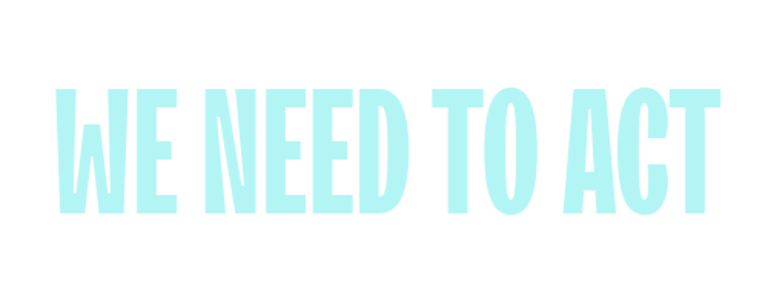
Episode Transcript
“Basic Income for Peace with Nature”
In partnership with: Cool Earth & Equal Right
Guests: Isabel Felandro (Cool Earth) & Carlos Pérez (Equal Rights)
Introduction
Sara Rego:
Welcome to We Need to Act. Today I’m joined by Isabel from Cool Earth and Carlos Pérez from Equal Right to discuss how basic income can drive environmental protection and social justice. We’ll explore their pioneering work in Peru and Colombia, where money is being transformed from a tool of exploitation into one of empowerment.
The Role of Money in Climate Justice
Sara Rego:
We live in a capitalist system where wealth shapes power and politics. As the environmental crisis disproportionately affects vulnerable and Indigenous communities, how can money be transformed from a tool of exploitation into one of justice?
Isabel Felandro:
Money itself isn’t the problem—it’s how it’s distributed. For decades, conservation has relied on market-based systems that fail to support the people truly protecting the forests. At Cool Earth, we’re rethinking that by redistributing climate finance directly to Indigenous communities, building trust, and giving them autonomy.
By doing so, money becomes a tool for social and climate justice, not control. It supports peacebuilding, resilience, and empowerment.
"Money itself isn’t the problem—it’s how it’s distributed. For decades, conservation has relied on market-based systems that fail to support the people truly protecting the forests." - Isabel
Lessons from Peru and Expanding into Colombia
Sara Rego:
In 2023, Cool Earth launched the world’s first basic income pilot for rainforest communities in Peru. What lessons are shaping the new program in Colombia?
Isabel Felandro:
Our pilot in Peru built on 15 years of experience supporting communities in rainforests across the globe. The biggest lesson was the importance of co-designing with local Indigenous organizations. By partnering with women-led groups and giving communities ownership, we built trust, transparency, and local leadership.
These are the principles guiding our expansion into Colombia.
Collaboration Between Cool Earth & Equal Right
Sara Rego:
Carlos, Equal Right is partnering with Cool Earth on this initiative. What are your main goals for the project?
Carlos Pérez:
The Basic Income for Peace with Nature project in the Colombian Amazon aims to provide unconditional, regular payments to Indigenous communities as recognition of their historic role as guardians of the rainforest.
It’s about economic autonomy, reducing inequalities, and creating the conditions for sustainable peacebuilding in Colombia. When people have the means to live with dignity, they can focus on conservation and community resilience.
Impact and Community Response
Sara Rego:
How have local communities responded to this initiative?
Isabel Felandro:
At first, there was mistrust—many organizations in the past imposed strict conditions. But once we built relationships and involved communities in every step, the response was overwhelmingly positive.
People are using the income for food, education, healthcare, and small businesses. Many report feeling happier and less stressed, spending more time with family, and participating in community activities like reforestation.
It’s helping achieve what Indigenous people call El Buen Vivir — “the good way of living.”
Education, Policy & the Power of Collaboration
Carlos Pérez:
Education is key. It helps build awareness of our interconnectedness with nature. Indigenous worldviews have so much to teach us about sustainability and well-being.
At Equal Right, we also work to influence policy, ensuring that projects like this inform national basic income frameworks. It’s about moving from pilot programs to systemic change.
Challenges & Hope
Isabel Felandro:
Working in Colombia comes with risks—violence, illegal activities, and threats to environmental defenders. Safety and local engagement come first. We adapt projects to local realities and protect community data.
Carlos Pérez:
Political will is often the biggest challenge. Some see basic income as charity, not a right. But we believe education and dialogue can change that. Despite polarization, building consensus is possible when we focus on shared goals—peace and sustainability.
Closing Reflections
Sara Rego:
As David Attenborough said, “We know what we have to do. We just need the will.” Thank you both for this inspiring conversation.
Isabel Felandro:
Thank you, Sara. Conservation shouldn’t be done to communities but with them.
Carlos Pérez:
And true progress means remembering we are all interconnected. This project is one step toward equality and balance with nature.
🌿 Learn More
Cool Earth
Equal Right
Listen to the full episode on Spotify, Apple Podcasts, or wherever you get your podcasts
"Education is key. It helps build awareness of our interconnectedness with nature. Indigenous worldviews have so much to teach us about sustainability and well-being." - Carlos
Photo: Marjanne Heinen
Explore our podcast
Join our community on Social Media
© 2025. All rights reserved.


